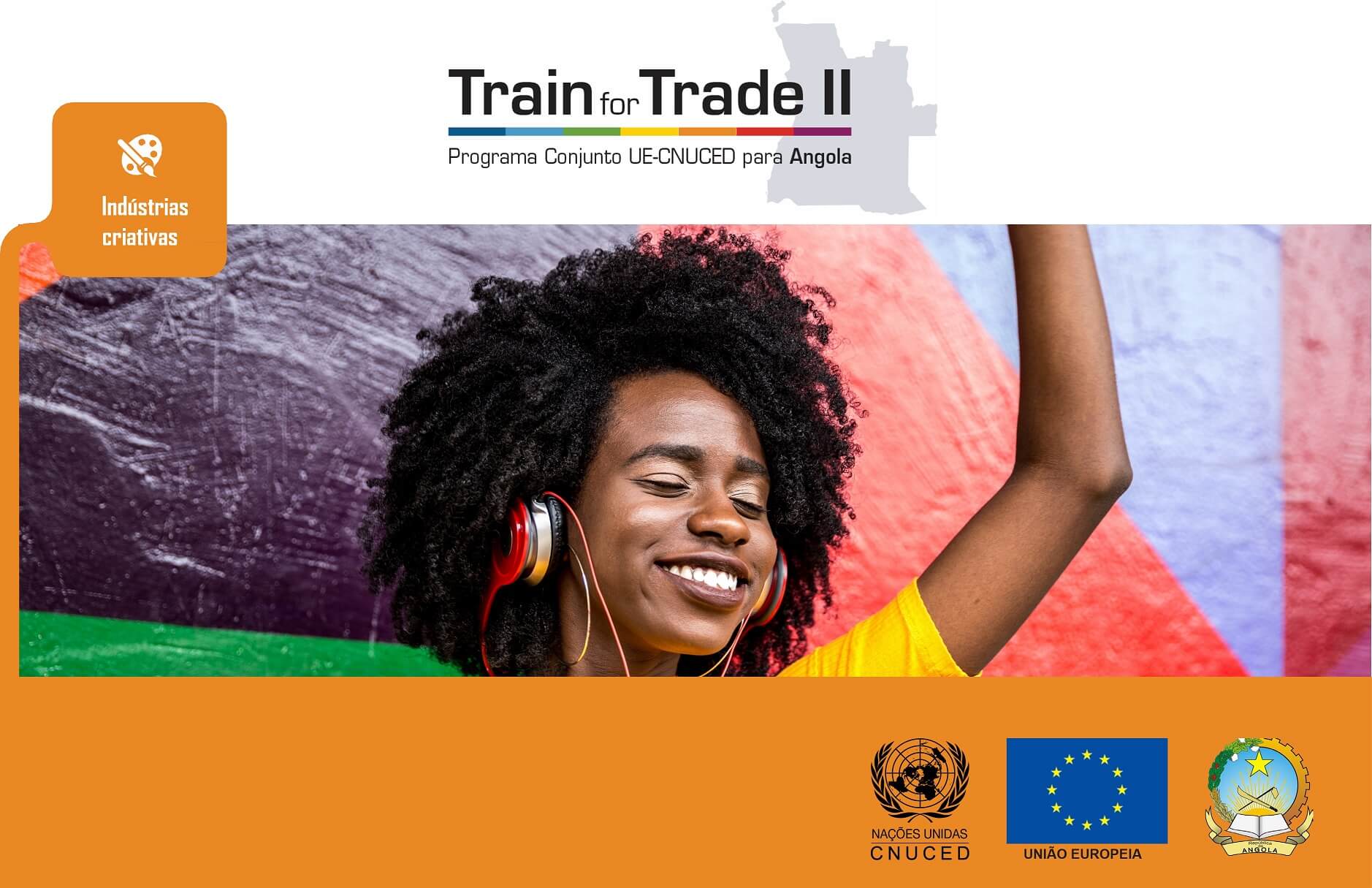Search results: 148
Trade and Gender Linkages with a Focus on Non-Tariff Measures from a Gender Perspective (2025)

In this upcoming online course titled ' Trade and Gender linkages with focus on Non-Tariff Measures from a gender perspective', UNCTAD aims to equips participants with the knowledge to understand the impact of Non-Tariff Measures (NTMs) on women in the context of international trade and to formulate gender-equitable policies.
The objective of the course is to provide participants with the knowledge needed to analyse the two-way relationship between trade and gender, to understand the differentiated impacts of Non-Tariff Measures (NTMs) on women, and ultimately produce gender-aware policy recommendations. To this end, the course introduces the concepts of trade and gender and takes a close look at the challenges women face as a result of NTMs. It combines theory on the interaction between trade and gender with empirical evidence, and proposes policy and practical responses to address these issues.
Upon completion of the course, participants will be able to achieve the following objectives:
- Look at the economy from a gender perspective
- Identify the channels through which trade affects women’s economic empowerment and well-being, and the channels through which gender inequality affects trade performance and competitiveness
- Illustrate how trade integration has influenced gender outcomes in the different economic sectors
- Be familiar with the ongoing debate and rulemaking on trade and gender at the multilateral, regional and bilateral levels
- Understand NTMs and the gender-specific challenges associated with them
- Analyze the gendered impacts of NTMs in the context of the digital economy
- Be familiar with Voluntary Sustainability Standards and their role in women's economic empowerment in the agricultural sector
- Use the knowledge acquired to produce policy-oriented research and strategies that could be used by national and regional policymakers, and academic papers investigating the interplay between trade and gender
This online course on NTMs from a gender perspective aims to provide opportunities for participants to further enhance their knowledge and to build their professional networks through interactions via an online discussion platform.
The portfolio of teaching resources includes teaching modules focused on specific regions, or on selected topics of relevance for the analysis of the trade and gender nexus.
Trade Negotiation Techniques: Theory and Practice

This online course, which is the third one in UNCTAD’s trade policy e-learning series, is a self-paced, easy to follow course. It is developed to address the need for building negotiation capacities of trade officials in developing countries; but is open to officials involved in trade negotiations in all countries, including developed ones to create a common understanding of the challenges faced in negotiation processes by officials of both developing and developed countries.
The course is based on the Practical Guide on Skills and Techniques for Trade Negotiators prepared by Dr. Craig VanGrasstek, the course instructor. This guide will be made available on the course platform to enrolled participants. The guide and the course modules aim to offer guidance on the conduct of trade negotiations with the expectation that the typical course participant will be a diplomat or other policymaker in a developing country who has been tasked with representing the country in multilateral trade negotiations at the WTO or participating in a trade negotiation for a free trade agreement with a single trade partner.
Objectives
The course aims to enhance and strengthen the negotiation capacity of trade officials in a way that best fits to achieving their country’s sustainable development goals. After completing this course, participants will have acquired the necessary techniques and skills required for trade negotiations.
Methodology
The course consists of five modules, with pre-recorded videos prepared by the instructor. Participants are expected to follow the modules at their rhythm, ideally one module per week. At the end of each module, participants need to pass a quiz to be able to move on to the following module. A certificate will be issued to participants upon completion of the modules, quizzes and course evaluation survey. The course includes three webinars, one in February and two March 2025, where participants can engage in an interactive discussion with Dr. Craig VanGrasstek, the principal course instructor, as well as trade experts from UNCTAD and other international organizations.
Contents
The course is composed of five modules:
1. Review of negotiations theory and practice.
2. The conduct of multilateral trade negotiations.
3. Preferential and non-preferential market-access negotiations.
4. Understanding a negotiating partner - Part 1: The economic issues.
5. Understanding a partner - Part 2: The political issues.
Target Audience
Government officials, especially from Ministry of Trade/Commerce, who are or will be involved in trade negotiations.
Prerequisites
Applicants from a broad spectrum of backgrounds in policymaking, including international trade, industry, agriculture, services, intellectual property rights, environment, labor and technology are encouraged.
Applicants must meet the following requirements:
· Hold at least a bachelor’s degree in economics or related areas.
· Possess very good knowledge of the English language.
Internet connection is required as the multimedia lecture and quizzes are run entirely from the course website.
Cost participation
The course is free and open to all interested candidates.
Trade Policy Frameworks

The course modules introduce what trade policy and trade policy framework is. It elaborates on the link between trade and development, as well as existing schools of thought on the subject matter. It introduces the traditional instruments of trade policy, such as tariffs, as well the expanding scope of trade policy, including services, investment etc. The course describes the various steps involved in the preparation of national positions, including inter-ministerial consultations.
Objectives
It aims to enhance and strengthen the technical capacity of trade officials and other stakeholders for developing appropriate trade policies in line with their sustainable development goals. After completing this course, participants will be equipped with the tools and skills necessary to devise their national trade policy framework.
Methodology
The course consists of nine modules, of which eight with pre-recorded videos prepared by the instructor. Participants are expected to follow the modules at their rhythm, ideally one module per week. At the end of each module, starting from module2, participants need to pass a quiz to be able to move to the following module. The course includes two webinars to be held in October and December 2024, where participants will have an opportunity to engage in an interactive discussion with Mr. Craig VanGrasstek, the course instructor, as well as trade experts from UNCTAD and other international organizations.
Contents
1. What is trade policy, and what should be its objective?
2. Trade policy frameworks.
3. Trade and development.
4. Options for trade and development: Discrimination, non-discrimination, and special & differential treatment.
5. Traditional instruments of trade policy: tariffs, trade-remedy laws, and other border measures.
6. The expanding scope of trade policy: Services, investment, intellectual property, and other issues.
7. Trade Policy Frameworks and the Sustainable Development Goals.
8. Dispute-Settlement and Trade Policy Frameworks.
9. Preparing national positions: Inter-Ministerial consultations and relations with civil society.
Target Audience
Government officials, especially from Ministry of Trade/Commerce, and other stakeholders, including trade experts from non-governmental organizations, involved in the formulation of a national trade policy framework.
Prerequisites
Applicants from a broad spectrum of backgrounds
in policymaking, including but not limited to international trade, industry,
agriculture, services, environment, labor, and technology, are encouraged.
Applicants must meet the following requirements:
- Hold at least a bachelor’s degree in economics or related areas.
- Possess good knowledge of the English language.
Internet connection is required as the multimedia lecture and quizzes are run entirely from the course website.
Cost participation
The course is free and open to all interested candidates.
Grading and certificate
A certificate will be issued to participants upon completion of the modules, quizzes and course evaluation. Participants need to pass the quiz that follows the modules from 2 to 9.
Training course on Trade Impact Assessment

To enhance the technical capacity of trade officials and other stakeholders in analyzing the possible impact of any bilateral or regional trade agreement their country seeks to sign or adopt, UNCTAD developed this online course. The course will be offered in English over a period of five weeks from 25 September to 29 October 2023. It is tailored to fit the needs of the stakeholders in developing and least developed countries and is part of UNCTAD’s portfolio of online courses on trade policy.
The course is based on the UNCTAD Guidebook on Trade Impact Assessment and consists of four pre-recorded videos, including an introductory module on trade impact assessment (TIA) methodology and application; two modules on quantitative approach and one on qualitative aspects of TIA. It also includes two demo modules on the use of some of the trade databases available online.
Objectives
The objectives of this course are to raise awareness on existing trade databases and tools, and how to access and use them; and strengthen the technical capacity of trade officials and other stakeholders to quantify possible effects, in terms of GDP, imports, exports, government revenues and welfare, of any bilateral or regional trade agreement their country seeks to sign or adopt. After completing this course, participants will be equipped with ways and means to better analyze the potential gains and costs of future trade agreements.
Contents
The course is composed of four substantive modules and two demo modules. Substantive modules are:
1. Introduction to Trade Impact Assessment Methodology and Application
2. Quantitative Approach I: Trade data analysis, data and sources
3. Quantitative Approach II: Trade indicators and simulated approaches to trade analysis
4. Qualitative Aspects of Impact Assessment
Demo modules include:
1. Introduction to International Trade Centre (ITC ) TRADE MAP database
2. Introduction to WITS database and the use of SMART, a partial equilibrium modelling tool included in WITS
There will be two live online sessions in October 2023:
Session 1 - Trade data and analytical tools: Presentation of various databases and sources and how to use them.
Session 2 – Impact assessment for policymaking: How to use impact assessment for trade policy making.
To successfully complete the course, participants will be requested to pass a multiple-choice quiz after each module to be able to move on to the following module.
Target Audience
The course targets government officials and other stakeholders, including trade experts from non-governmental organizations, involved in trade policy formulation and negotiations who need to understand and use trade data and analytical tools; interpret the results of analytical studies for policy making; and identify policy options and define national positions. We encourage applicants from a broad spectrum of backgrounds in policymaking including but not limited to international trade, industry, agriculture, services, environment, labor, and technology.
Prerequisites
Applicants must meet the following requirements:
· Hold at least a bachelor’s degree in economics or related areas.
· Possess excellent knowledge of the English language.
To successfully complete the course activities, participants should plan to devote around two hours a week to the course.
Cost participation
Thanks to support from the European Union, selected participants will be exempt from fees associated with access to the course and live sessions.
Training series on investor targeting in agribusiness
Within the framework of the EU-UNCTAD Joint Programme for Angola: Train for Trade II, in 2019 UNCTAD presented to the Government of Angola the results and recommendations of its Investment Policy Review (IPR). The report's core findings and recommendations fall under two main working areas: first, the need to address existing gaps and bottlenecks in the investment climate; second, the need to encourage responsible investment in the agribusiness sector.
UNCTAD Investment Promotion Section is structuring and delivering technical cooperation to the Government of Angola through its investment and trade promotion agency AIPEX, to enhance its capacity to attract responsible investment in agribusiness. The introductory workshop on investor targeting was held online on 14 December 2021. The workshop went through the basics of investor targeting, market research, and identifying current investment opportunities. There were several follow-up online meetings to review practical work.
A presential training workshop on investor targeting in agribusiness took place from 19 to 21 April 2022 in AIPEX’s premises in Luanda. The training continued, reviewed and wrapped up the work done online. The modality of participation was hybrid with some stakeholders joining online.
This technical assistance expands for eight months and includes capacity-building and hands-on training activities. The target groups of the training activities series from November 2021 to July 2022 are AIPEX, Government officials from key Ministries, other organizations and stakeholders working with investment promotion in agribusiness or developing related areas crucial for functional value chains, such as transport and logistic infrastructure like ARCCLA (Agência Reguladora de Certificaçao de Carga e Logistica). The final outcome will be a methodology to target responsible investment in Angola’s agribusiness sector.
This training was developed by Ms. Natalia Guerra under the EU-UNCTAD Joint Programme for Angola: Train for Trade II, IPR component.
Objectives
The main objectives of the training are:
- Building capacity in AIPEX (Angola’s Investment and export promotion agency) to promote responsible investment in agribusiness projects.
- Assisting AIPEX to promote and measure the impact of investment in agribusiness.
Methodology
The technical assistance expands over an eight-month period and the methodology includes capacity-building and hands-on training activities.
Contents
The main activities involve:
- Identify with AIPEX of 2 - to 3 pilot investment opportunity projects in the agribusiness value chain. Online hands-on training and follow-up activities.
- Sectoral research
- Selection of stakeholders
- Attractivity analysis
- Financial returns
- Mapping of existing foreign and local investors
- Develop together with AIPEX investment project proposals for these pilot investment projects. Hands-on training in Luanda and follow-up activities.
- Building technical capacity in AIPEX investment promotion teams for project management towards the conversion of the investment projects.
- Identification of investor’s investment criteria.
- Facilitating investor’s project development e.g., providing key information, and identifying financing schemes.
- Provide AIPEX with shortlists of potential investors, including outward investment promotion agencies, development finance institutions, institutional investors and established investors. (e.g., build on the list in the IPR).
- Database management.
- Determine the profile of the desired investors.
- Development of investors' datasheets.
- Design of an approach strategy.
- Prepare a marketing and targeting strategy to promote pilot investment projects to potential investors.
- Capacity-building training sessions with sectoral promotion managers that will cover information on potential target companies and institutions as well as specific concessional finance schemes by organizations like OECD.
- Incorporation of modern, technologically advanced investment promotion and marketing tools.
Target Audience
The target participants are:
- AIPEX Investment Promotion team
- Government officials from key ministries, such as the Ministry of Agriculture and Fisheries, and the Ministry of Economy and Planning as well as other organizations and stakeholders working on investment promotion in agribusiness or developing related areas crucial for functional value chains, such as Angola’s transport infrastructure through the Ministry of Transports and the Regulatory Agency for the certification of cargo and logistics (ARCCLA).
- In line with the Train for Trade II Programme’s gender equality targets, due attention should be awarded to gender balance in nominated participants, with the objective to reach overall 40% female participation in training across the Programme.
Turismo Cultural e Criativo

Este curso apresenta uma estrutura formativa de curta duração e em modalidade online, direcionada para atores públicos e privados associados aos setores turísticos, culturais e criativos de Angola.
Ao longo de oito módulos temáticos é explorada a relação entre turismo, cultura e desenvolvimento com o objetivo de contribuir para a criação de competências orientadas para a formulação e implementação de políticas publicas a nível local, regional e nacional, com o intuito de promover novas oportunidades para o empreendedorismo e o emprego no turismo criativo.





